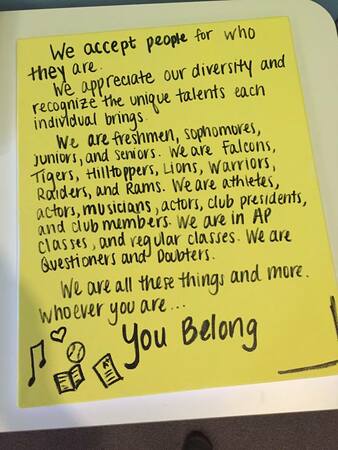
When they hear how much of a role my student leaders have in creating our ministry's vision, other youth workers often look at me as though I'm crazy. They wonder, Why would you entrust your teens with creating your vision?
To which I say, Why wouldn't you?
Now, before you decide I'm crazy, let me clarify a few things.
As the leader of our ministry, I'm not directionless. I'm not looking to my student leaders to tell me how to lead or do my job. The vision casting we do happens together in a carefully constructed context of year-long discipleship. As part of that discipleship process, my student leaders learn about godly leadership and the church. Because they're actively thinking and learning about these things, they can be trusted with significant responsibilities, including setting vision. What's more, because we are in a discipleship process together, I can influence the process. I don't just stand back, wave my hands, and say, “Have at it.” Instead, I ask questions that help teens move in a direction that makes sense for our ministry.
That said, because student leaders have a role in casting our vision, we typically break two vision-casting rules:
1. Our vision usually can't be reduced to 4 words or a catchy slogan. If you asked my student leaders, “What's your youth ministry's vision?” they'd probably give you a blank stare because when we're casting vision, we don't call it that. That language makes no sense to teens. But, if you asked our student leaders, “What's your youth ministry about?” they'd be able to tell you.
2. Our vision changes but that's OK because so do our teens, who graduate from our ministry every four years. Rather than outlast our leaders, our vision is meant to uniquely reflect them (as well as their gifts) as well as who our ministry is in a given year.
This year, my student leaders and I crafted the vision for our ministry as part of our discussion about the greater church using Rachel Held Evans' Searching for Sunday. One of the great things about Rachel's book is that she highlights several congregations from different denominations. One of them is Kathy Escobar's The Refuge, which was inspired by both the Beatitudes and the 12 steps of Alcoholics Anonymous. Rachel talks about how The Refuge “extends an invitation” rather than boasts a doctrinal statement. Basically, their invitation consists of several sentences about who they are and what they love.
Using The Refuge's invitation as our model, I asked my student leaders to work together in small groups to craft an invitation for our high school ministry – essentially our vision for who our ministry is and what we're about. They then shared their invitations with one another and combined the best of them into one larger statement. Here's the finished product: